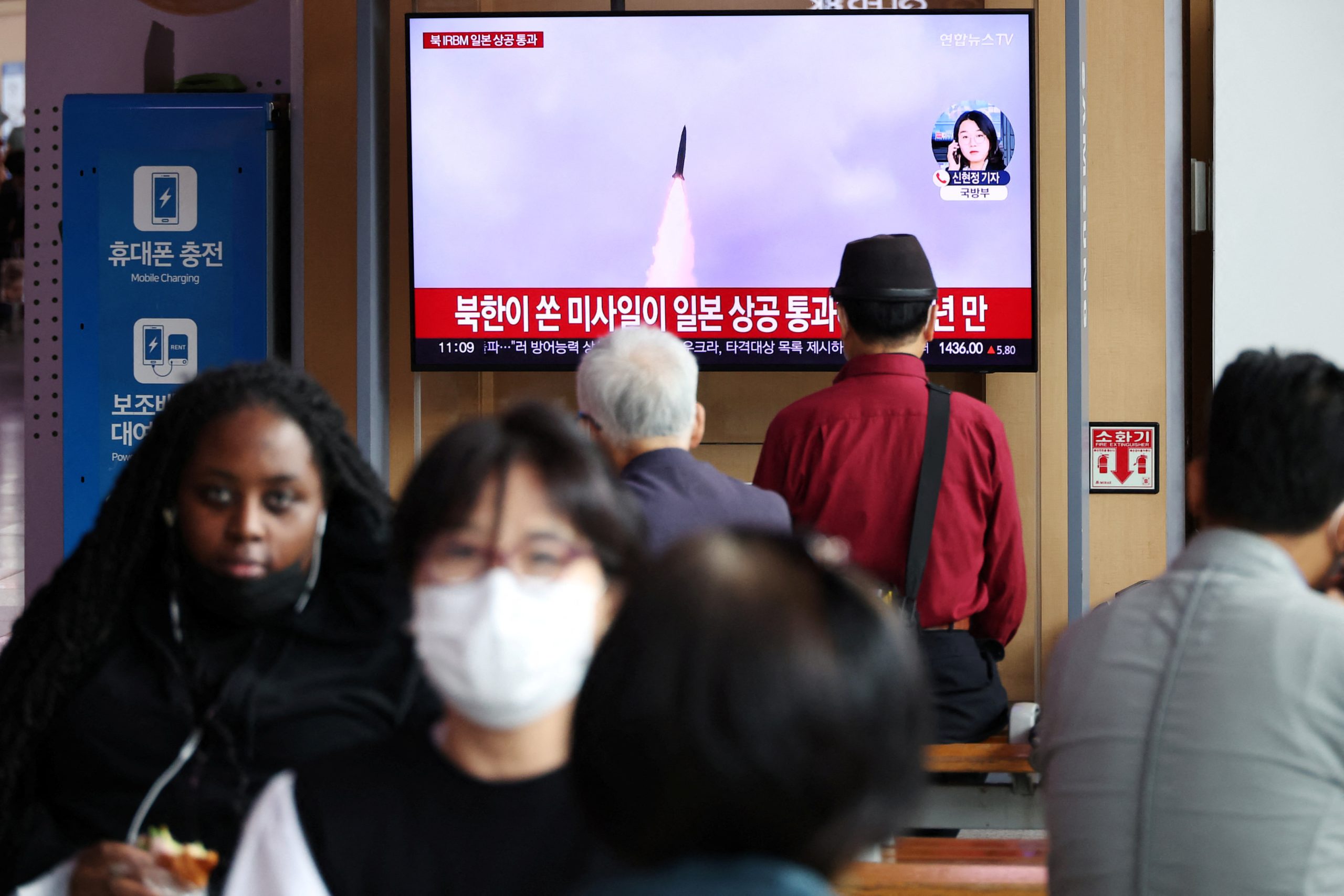
Willie R. Tubbs, FISM News
[elfsight_social_share_buttons id=”1″]
The dictatorship of North Korea upped the ante in its never-ending poker game against the West, but moved dangerously close to raising the stakes to the point that the Free World might feel the need to flip the card table.
While most Americans were either already asleep or preparing for bed, the people of Japan were forced to endure a stress that used to cause nightmares for the children of the Cold War. In a move that is tantamount to an act of war, North Korea fired a ballistic missile over the sovereign nation of Japan.
This was the fifth time in the last 10 days that North Korea fired a ballistic missile, but this was the first of those missiles to travel such an aggressive line of flight. Previous missile firings were fired high into the atmosphere so as to avoid entering the air space of neighboring countries.
Sirens sounded in regions of the country with messages warning that North Korea had fired a missile and urging residents to “please take shelter inside a building or underground.” The U.S. Embassy in Tokyo also took the provocation seriously, warning U.S. citizens of the launch and telling them to monitor media outlets for further instructions.
According to Reuters, the missile traveled 2,850 miles before crashing into the Pacific Ocean. The missile flew over the Hokkaido and Aomori regions and caused the nation’s trains to cease operations until after the danger had passed.
North Korea ballistic missile launch on Oct. 4, 2022.
Launch time: 0722 am
Apogee: 1,000 km
Range: 4,600 km
Impact time: 0744 amMap from Japan Ministry of Defense pic.twitter.com/QyicUKYBJe
— Ryan Chan 陳家翹 (@ryankakiuchan) October 4, 2022
While Japan did not respond militarily, its leaders did not rule out any form of response and would strengthen its defenses.
“North Korea’s series of actions, including its repeated ballistic missile launches, threatens the peace and security of Japan, the region, and the international community, and poses a serious challenge to the entire international community, including Japan,” Reuters quoted Japan’s top government spokesperson, Hirokazu Matsuno, as saying.
South Korea, similarly, announced it would continue to bolster its national defense through strengthening its military posture and working with its allies, chief among them the United States.
National Security Council Spokesperson Adrienne Watson confirmed in a statement that the Biden administration was aware of the issue and fundamentally agreed with Japanese leaders’ assessment of the event.
“The United States strongly condemns the Democratic People’s Republic of Korea’s (DPRK) dangerous and reckless decision to launch a long-range ballistic missile over Japan,” Watson said. “This action is destabilizing and shows the DPRK’s blatant disregard for United Nations Security Council resolutions and international safety norms.”
Watson added that National Security Advisor Jake Sullivan had spoken by phone with his counterparts in both Japan and South Korea, which is often referred to internationally as the Republic of Korea (ROK).
“In both calls, the National Security Advisors consulted on appropriate and robust joint and international responses and National Security Advisor Jake Sullivan reinforced the United States’ ironclad commitments to the defense of Japan and the ROK,” Watson said. “The United States will continue its efforts to limit the DPRK’s ability to advance its prohibited ballistic missile and weapons of mass destruction programs, including with allies and UN partners.”
Reuters, citing South Korea’s Joint Chiefs of Staff, reports the missile was likely fired from North Korea’s Jagang Province, which was the site of previous launches, including a 2017 missile that also traveled over Japan. The missile was likely a Hwasong-12 IRBM model, the same model of missile that North Korea fired in 2017.
North Korea, which has proven over the years to have just one tool in its economically depleted international communication kit, has been firing missiles frequently of late in what is likely a combination of acquiescence to pressure from China and an attempt to demonstrate military might to the West.
However, to call the repressive nation’s missile firing as only a show of force would be to miss a key point. North Korea has made it abundantly clear that it desires to be substantially more aggressive.
In the past, North Korea has stated that it has a desire to develop a nuclear arsenal as well as weaponry that it can use to strike U.S. military bases in the Indo-Pacific.
